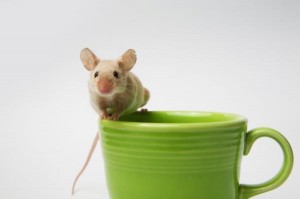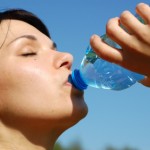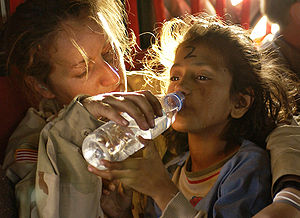More research showing that coffee is not the brew of the devil. Not only does it prevent Alzheimer’s, it stopped the progression of the disease. But a few caveats: it was caffeine, not coffee; it’s an awfully lot; it was mice, not people and no one asked them if they were jittery.
From the Times of London:
Daily caffeine dose may delay progress of Alzheimer’s, researchers say
Hannah Devlin
Three large cups of coffee a day could help to slow the progress of Alzheimer’s disease and even reverse the condition, researchers say.
A daily dose of caffeine can suppress the degenerative processes in the brain that can lead to confusion and memory loss, a study in mice suggests.
Although drinking coffee has previously been linked to a lower risk of developing Alzheimer’s, this is the first study to suggest that caffeine can directly target the disease itself.
Alzheimer’s occurs when sticky clumps of abnormal protein in the brain called beta-amyloid build up to form plaques, impairing cognitive function. But mice with a rodent equivalent of the disease showed a 50 per cent reduction in levels of amyloid protein in their brains after scientists spiked their drinking water with caffeine.
The change was reflected in their behaviour as they developed better memories and quicker thinking. In the study, published today in the Journal of Alzheimer’s Disease, researchers from the University of South Florida studied 55 mice that had been genetically engineered to develop dementia symptoms identical to those of Alzheimer’s as they aged. Before treatment the mice, which were aged 18 to 19 months — about 70 years in human terms — had performed poorly in the memory tests.
Half the animals were given a daily dose of caffeine in their drinking water — equivalent to a human consuming about six espresso shots or 500mg of pure caffeine — while the other half continued to drink ordinary water. By the end of the two-month study, the caffeine-drinking mice were performing far better on tests of memory and thinking than mice given water. Their memories were as sharp as those of healthy older mice without dementia.
The scientists found that when the mice drank caffeinated water their blood levels of beta amyloid protein fell quickly. More importantly, the same effect occurred in the brain. Almost half the abnormal protein previously seen when the brains of Alzheimer’s mice were examined had vanished after two months.
The researchers hope that caffeine could present a safe, inexpensive treatment for dementia.
Professor Gary Arendash, a memory and ageing specialist who led the latest research, said that he wished to conduct human patient trials as soon as possible.
“The findings provide evidence that caffeine could be a viable treatment for established Alzheimer’s disease and not simply a protective strategy,” he said.
A study in 2002 found that people who consumed caffeine in mid-life were 60 per cent less likely to develop the disease.
About 417,000 people in the UK suffer from Alzheimer’s, and numbers are steadily rising. There is currently no cure and although drugs can help stabilise the condition, they are not widely available on the NHS until patients have advanced-stage disease and their effectiveness is relatively unpredictable from person to person.
Taking 500mg of caffeine in tablet form would be safe for most patients and would have relatively few side-effects, Professor Arendash said, although it is not clear how the dosage would translate from mice to humans.
Rebecca Wood, chief executive of the Alzheimer’s Research Trust, said that it was too early to say whether coffee or caffeine supplements could help Alzheimer’s patients.
“With no cure yet, research into treatments that could help people with Alzheimer’s is vital. [But] we need to do more research to find out whether this effect will be seen in people,” she said.
Getting perked up
How to get 500mg of caffeine a day:
2 x 250mg caffeine pills
3 x large espresso-based coffees
6 x cans of Red Bull
14 x cans of Coca-Cola
15 x cups of tea
7kg (16 lb) of chocolate
Source: US Food and Drug Administration, University of South Florida
See also:
http://news.bbc.co.uk/2/hi/health/8132122.stm
Excerpt:
When the mice were tested again after two months, those who were given the caffeine performed much better on tests measuring their memory and thinking skills and performed as well as mice of the same age without dementia. Those drinking plain water continued to do poorly on the tests.
In addition, the brains of the mice given caffeine showed nearly a 50% reduction in levels of the beta amyloid protein, which forms destructive clumps in the brains of dementia patients. Further tests suggested caffeine affects the production of both the enzymes needed to produce beta amyloid. The researchers also suggest that caffeine suppresses inflammatory changes in the brain that lead to an overabundance of the protein.
See also: Science Daily article with citations and the mouse picture above.

 We all need water. Water helps hydrate our tissues and flushes our kidneys. We are 85% water and we need to replace water lost through urine, stools, sweat and breathing. Water even carries qi, via hydronium ions, so you want to drink enough if you are feeling lethargic.
We all need water. Water helps hydrate our tissues and flushes our kidneys. We are 85% water and we need to replace water lost through urine, stools, sweat and breathing. Water even carries qi, via hydronium ions, so you want to drink enough if you are feeling lethargic.